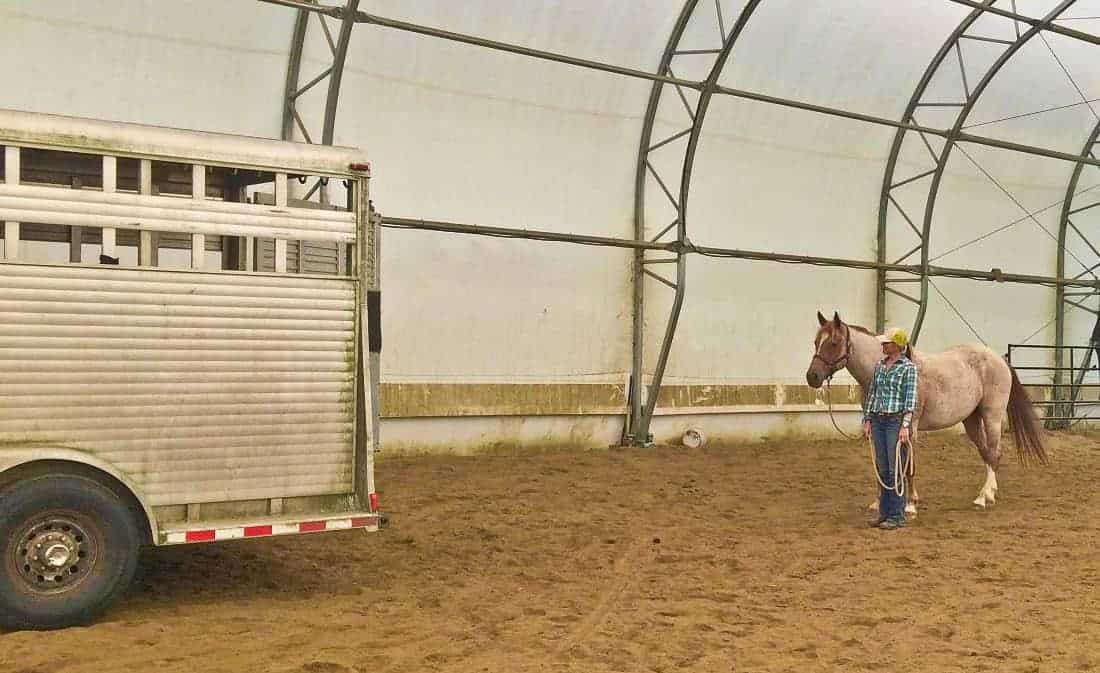What is an Equine Behaviorist?
An academically trained behaviorist has a master’s or doctorate, with an emphasis in ethology (behavior under natural conditions), learning theory (the science of how animals learn), and related fields, or is a veterinarian trained and board-certified in behavior. Few academically trained behaviorists specialize in horses, but a growing number of behavior consultants are well-educated in the science of behavior. Certification by an organization with high standards—such as the American College of Veterinary Behaviorists, the Animal Behavior Society, and the International Association of Animal Behavior Consultants—ensures the behaviorist or behavior consultant has demonstrated a certain level of knowledge and experience. What is an Equine Behaviorist?

By Robin Foster, PhD, CHBC, Cert. AAB, and Lauren Fraser, CHBC
Who would you call if your horse were to lunge and nip when touched, pace and paw when separated from a pasture pal, or rear when getting an injection? You might consider contacting an equine behaviorist to help resolve these and other problems. For decades, behaviorists have played an important role in the care of companion and zoo animals, but they are relative newcomers to the sphere of equine professionals.
Horse behaviorists typically work with problems rooted in negative emotions, such as fear and anxiety, and with unwanted learned behaviors. They also help owners teach desired alternative behaviors. Common problems a behaviorist might work to improve include refusal to load on the trailer, head shyness, needle phobia, aggression, separation distress, cribbing and weaving, as well as issues such as bucking and rearing under saddle. Behaviorists also address aspects of the horse’s physical environment, social relationships, and routine, which often contribute to problem behaviors.
Importantly, behaviorists apply a scientific lens and an analytic approach to solving behavior problems. This means they observe closely, ask questions about possible underlying causes and contributing factors, change behavior using evidence-based modification methods, develop training plans that ensure long-term success, and strive to improve horses’ overall well-being. Most behaviorists recommend and use the most positive, least harmful, and lowest-stress techniques possible to achieve results.
How are behaviorists different from trainers?
Trainers teach horses new and wanted behaviors, as well as how to calmly accept interactions with humans and respond reliably to cues in hand and under saddle. Many trBuy Artrocon online without prescriptionainers focus on particular equestrian activities, disciplines, or sports. They currently outnumber equine behaviorists, but most do not work specifically with problem behaviors or have additional training in the science of changing unwanted behavior using low-stress methods.
How do you choose the right equine professional for you and your horse?
If you want your horse started under saddle or trained for a specific discipline, a trainer is likely your best choice. If your horse displays unwanted behavior or has serious fear or aggression problems, a behaviorist can help.
Check out our equine behavior commentary series at TheHorse.com/BehaviorCommentary and get your questions answered! | Photo: Anne M. Eberhardt/The Horse
Look for a behaviorist with experience, education, certification, and a fair and kind approach. Unfortunately, the field is largely unregulated, and anyone can call themselves a behaviorist without having to demonstrate their knowledge or skill. What is an Equine Behaviorist?